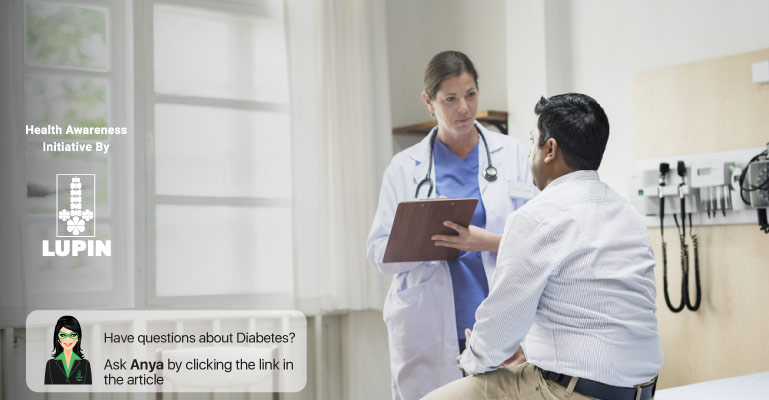Coping After A Heart Attack: Things You Should Know
By PharmEasy Medical Board +2 more

Get,

to manage your symptom
Get your,


4 Cr+ families
benefitted

OTP sent to 9988776655



You’ve successfully subscribed to receive
doctor-approved tips on
Whatsapp

Get ready to feel your best.

Hi There,
Download the PharmEasy App now!!


Register to Avail the Offer
Send OTPBy continuing, you agree with our Privacy Policy and Terms and Conditions

Hi There,
Sign up on PharmEasy now!!
Trusted by 4 crore+ families

OTP sent to 9988776655



You have unlocked 25% off on medicines




Code: NU25
By PharmEasy Medical Board +2 more
A heart attack can leave you with a traumatic experience along with strong mixed feelings of denial, anger, fear, anxiety or depression. These are normal reactions that can affect not only you but your family and co-workers too. This might not only make you concerned about your future but also raise questions about your present health condition – be it the lifestyle changes you would have to make or a new diet you would have to follow. You and your family would probably have a lot of questions.

Table of Contents
Seek your doctor’s advice. He/she would be the right person to not just ease your worries, but also guide you in the right direction. Tell him/her about any episodes of anxiety or pain and discomfort. Re-collecting all the instructions given by your doctor just after an attack may be overwhelming initially. Don’t worry and don’t hesitate to ask all your doubts and if you feel the need, do pen them down. Make sure to practice these instructions daily.
After your discharge from the hospital, you will need to rest and relax. Returning to all of your normal activities, including work, may take a few weeks or 2 – 3 months, depending on your condition. During this time, try to engage in some light form of exercise. You should slowly increase your level of physical activity as advised by your doctor. Make sure that you do not overdo your exercise. Try returning to your daily activities bit by bit, as being fully productive at your work can take time. Avoid stressful situations at work and consider taking small breaks.
Recovering from a heart attack begins with making changes in your lifestyle. Lifestyle changes require setting up SMART goals. Your lifestyle changes should be Specific, Measurable, Attainable, Realistic and Time-oriented (SMART). Talk to your nutritionist about the same. Follow a healthy diet along with exercises recommended by your doctor. Take all your medications on time and as recommended by your doctor. Maintaining your weight would help keep a check on your cholesterol and blood pressure levels.
Read More: Healthy diet for heart
Do not shy away from discussing the emotional aspects or trauma you are facing; people usually describe as feeling a range of emotions post an attack, including
All you need to do at this time is to be positive. It takes time to tackle depression after an attack, so be strong and talk to your family members and healthcare provider. Consider your mental health as a part of your overall treatment plan. Always control your stress levels.
Say ‘NO’ to Smoking. One of the major risk factors for heart disease is smoking. Smoking can elevate your chances of having heart disease and worsen your condition. It is very important to take care of your body, especially after an attack. If you are a smoker, it is advisable to quit smoking as it would reduce the risk of another heart attack by 50%.
A person who has had a history of a heart attack is always at risk of future heart problems. Hence, it is vital to have regular check-ups monitored by specialists. This would help make timely interventions in the future alongside changes to your medicines, thereby reducing the risk of another heart attack. Control your blood pressure, cholesterol and keep a check on your diabetes, while maintaining a proper weight.
Also Read: First Aid for Heart Attack
Cardiac rehabilitation programs are provided by many hospitals and clinics. They provide exercise programs, ways to reduce and cope with stress, information about your diet, sexual activity, the need for additional treatment and other initiatives. This will also allow you to talk to other patients to share your concerns, problems and feelings. People who have been through such programs often volunteer as instructors for new patients. This may help in giving you more insight and reassurance.
Also Read: Know The Difference Between Heart Attack and Cardiac Arrest
Your heart attack is a warning that your present lifestyle must be modified to survive. Begin by starting a makeover journey for your heart by making your physical and mental health your priority.
Disclaimer: The above information has been prepared by a qualified medical professional and may not represent the practices followed universally. The suggestions listed in this article constitute relatively common advice given to patients and since every patient is different, you are advised to consult your physician, if in doubt, before acting upon this information. Lupin Limited has only facilitated the distribution of this information to you in the interest of patient education and welfare.

Leave your comment...
Comments